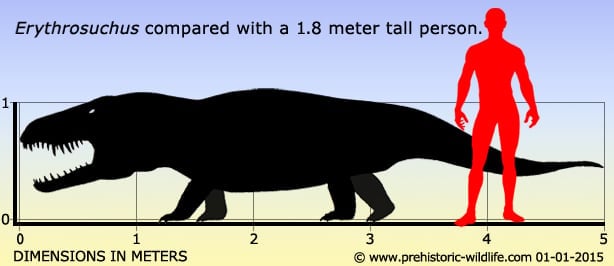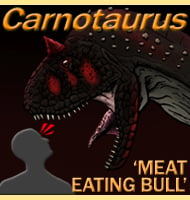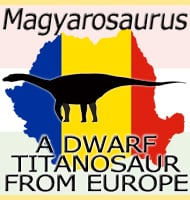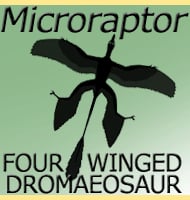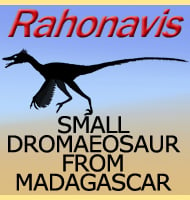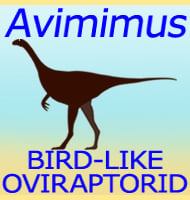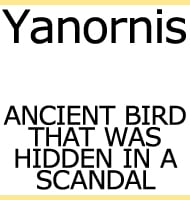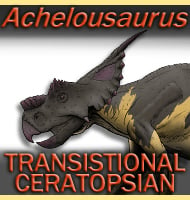In Depth
The large size of Erythrosuchus meant that it was an apex predator capable of tackling large herbivores such as Kannemeyeria and Lystrosaurus that were active in at the same time and location. Erythrosuchus was probably a relatively slow moving predator, although given the types of large prey available, speed would not have been necessary for capture. The proportionately large jaws contained sharp conical teeth, perfect for delivering large and crippling bites.
The ankles of Erythrosuchus show a development towards a digitigrade method of walking, essentially balancing the body on the toes rather than the whole foot. This makes Erythrosuchus similar to the more well-known Euparkeria even though there is a massive size difference between these two thecodonts.
Further Reading
– Notice of some new fossil reptiles from the Karroo Beds of South Africa. – Records of the Albany Museum 1(5):331-337.- Robert Broom – 1905. – �ber Erythrosuchus, vertreter der neuen reptil-ordnung Pelycosimia. – Geologische und Pal�ontologische Abhandlungen, N.F. 10: 67–122. – F. von Huene – 1911. – The pes of Erythrosuchus africanus Broom. – Zoological Journal of the Linnean Society 62 (2): 161–177. – A. R. I. Cruickshank – 1978.- Phylogeny of the Erythrosuchidae. – Journal of Vertebrate Paleontology. 12 (1): 93–102. – J. M. Parrish – 1992. – The braincase of the early archosaurian reptile Erythrosuchus africanus. – Journal of Zoology 242 (3): 557–576. – D. J. Gower – 1997.
